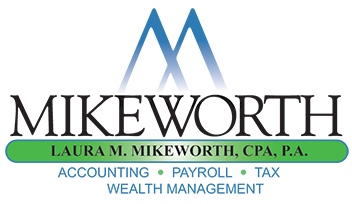5 Financial Tips for Your 30s

Your 30s are an exciting time. You’re typically making more money than you were in your 20s and you’re looking to the future to determine the type of life you want to live. Your 30s are also a great time to take control of your finances, so you have more security and flexibility in the coming years.
Here are 5 financial tips to follow in your 30s, to help you get ahead.
1. Create and stick to a budget
Budgets are a great way to set your financial goals and create a strategy for achieving those goals. Too often, we go from month to month without any overall plan, which usually results in not getting ahead—and sometimes we wind up in even more debt.
Determine your short- and long-term goals and figure out what you need to do financially to reach those goals. Do you want to buy a house? Go on a big vacation? Retire early? Do you need to spend less? Sell some items? Put more money in savings?
Without a budget, years can go by and you’ll realise you’re in exactly the same place financially that you were 5 years ago. Instead, create a budget, set out how much you’ll spend—and on what—how much you’ll save and what you’ll do with the rest of your money. Then, stick to your budget.
2. Diversify your income
Multiple income streams not only allow you to increase your earnings, they protect you in case of an emergency. Income from your job provides stability, but what happens if you’re suddenly unable to work? Having multiple sources of income protects you in such situations so you don’t find yourself in a financial crisis.
You can invest in property or stocks, for example. Or you can create passive income by writing and selling books in areas you’re an expert in. You could have a side job that allows you to earn extra money so you can pay down your debt faster.
3. Pay off your debt
It may be impossible to live completely debt free in your 30s, but getting rid of some debt such as credit cards and lines of credit can free up your income to allow you to save more for the future.
Pay off your credit card bills, your lines of credit and anything that has a high interest rate first, then move to other debts with lower interest rates.
4. Stop overspending
It’s tempting to overspend because we want to keep up with the people around us. Typically, when we hit our 30s we’re making more money, have greater disposable income and are surrounded by people who are also spending their money. It’s natural to want to keep up.
The problem is that spending too much in your 30s can affect your finances for the next few decades. Instead of buying a big house that impresses people but eats up your salary, consider something smaller that’s more affordable. Rather than buying a high-power new car, consider a less expensive model.
There are times when it’s worth it for you to spend big on items, but don’t do it just so you can keep up with other people—and definitely don’t do it if you can’t afford it.
5. Have an emergency fund
An emergency fund is essential to help you get through any extreme financial circumstances. Even if you’ve diversified your income, you need to have funds that you can access quickly in case of unexpected expenses, such as home and car repairs or medical bills.
An emergency fund is there to carry you through unforeseen circumstances, but having one also means you don’t have the stress of worrying about what will happen to you if something should go wrong. You have the peace of mind of knowing that you’ll have the financial means to react and adjust.
The amount recommended for an emergency fund varies depending on your lifestyle, finances available to you and job, but consider having around 6 months of expenses in a special account. Then promise yourself you won’t touch that money, except in a real emergency.
Final thoughts
By following these simple tips, you can take important steps in your 30s to set yourself up well financially for the future.

“Serving Cornelius, Huntersville, Mooresville, and Surrounding Area Small Business Owners since 1996″
Photo Credit: Shutterstock


